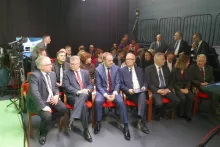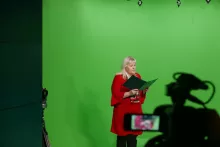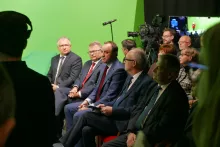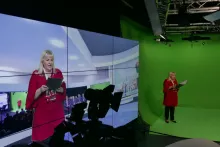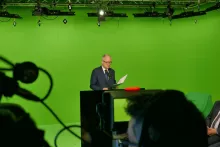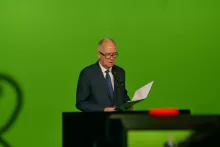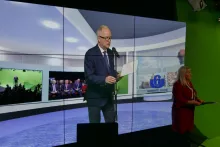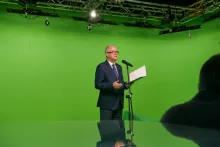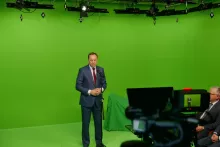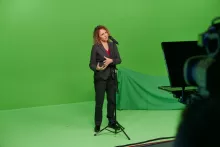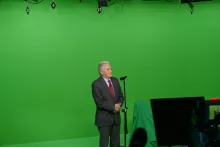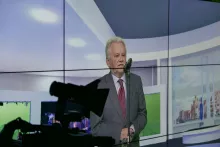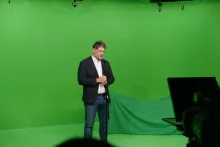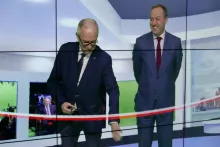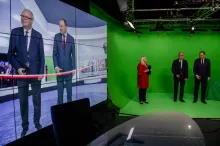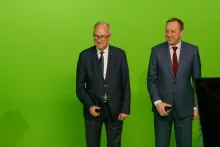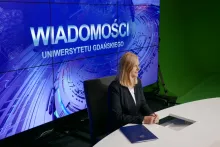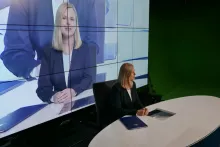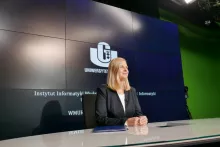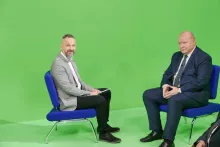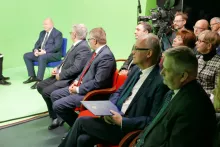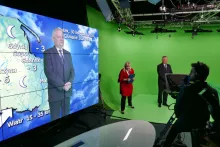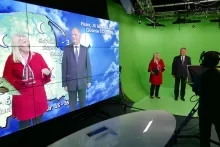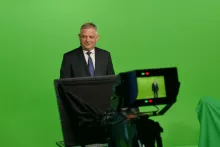Ceremonial opening of the UG’s Laboratory for the simulation of television recordings and film documentation
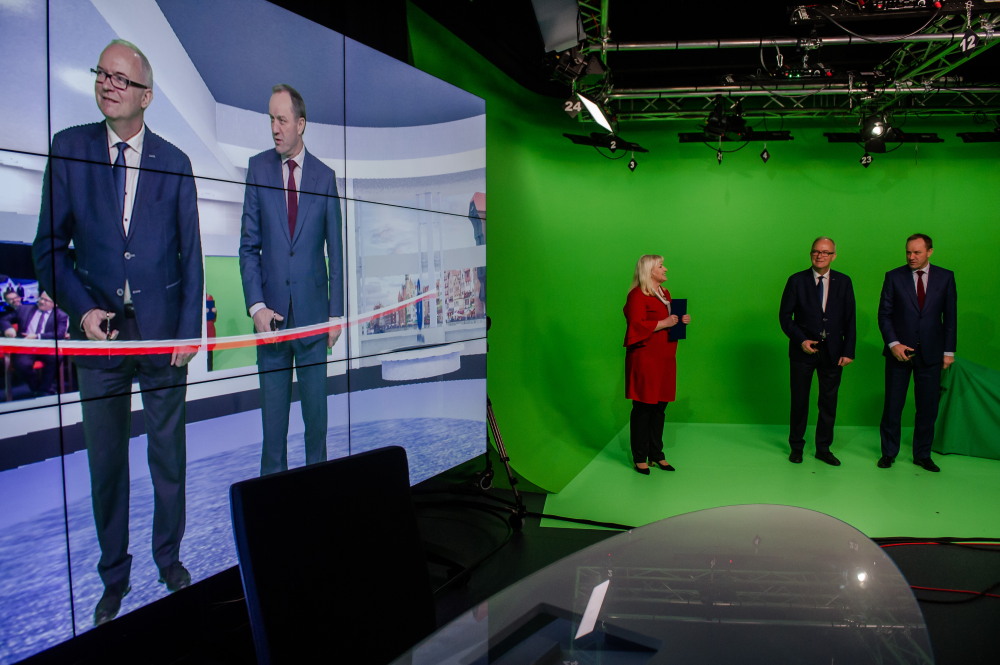
Photo: Mateusz Ochocki/KFP
The ceremonial ribbon-cutting marked the opening of the modern Laboratory for the simulation of television recordings and film documentation at the University of Gdańsk. A live programme with invited guests and UG authorities was recorded during the opening ceremony, thanks to which the possibilities of the studio could be presented. The studio is one of the most modern film laboratories in Poland for which the University of Gdańsk received funding as part of the Pomeranian Voivodeship Regional Operational Programme for 2014-2020. The interdisciplinary laboratory will be mainly used by students of two practical fields of study – Journalism and Social Communication and Film Studies and Audio-visual Culture.
The ceremonial opening of the UG’s Laboratory for the simulation of television recordings and film documentation took place on 30 November 2018 at the Faculty of Social Sciences. The ceremony was attended by invited guests, UG authorities and representatives of the UG’s academic community, particularly of the two practical fields of study – Journalism and Social Communication and Film Studies and Audio-visual Culture, who will be the laboratory’s main users.
The Rector of the University of Gdańsk, Prof. Jerzy Piotr Gwizdała, thanked the local authorities and UG representatives for their involvement in the creation of the studio and underlined its interdisciplinary significance.
Expressing his appreciation for the role of the University of Gdańsk in educating modern employees for the Pomeranian region, the Marshal of the Pomeranian Voivodeship Mieczysław Struk stressed the importance of the laboratory in the didactic process. Karolina Tilman, representing the Directorate-General for Regional and Urban Policy of the European Commission, spoke about the possibilities of using the laboratory in the context of the synergy between science and the economy, so necessary at present times.
Prof. Wiktor Pepliński, co-creator of Journalism and Social Communication as a field of study at the University of Gdańsk, recollected how the studio came about, while its technical possibilities were described by Wojciech Głodek, Director of the UG’s new unit – Centre of Film and Documentary Production from the Laboratory for the simulation of television recordings and film documentation of the University of Gdańsk and Jarosław Płatek, representative of 4Visions, the operator of the project.
A live programme was recorded during the ceremony and the possibilities of the modern laboratory were presented. The ribbon was ceremonially cut by the Rector of the University of Gdańsk, Prof. Jerzy Piotr Gwizdała and the Marshal of the Pomeranian Voivodeship Mieczysław Struk. The guests listened for the first time to recorded University of Gdańsk news, hosted by the UG’s Spokesperson Dr Beata Czechowska-Derkacz. A weather report was presented by the Chancellor of the University of Gdańsk Dr Mirosław Czapiewski and a live interview with the Deputy Marshal of the Pomeranian Voivodeship Wiesław Byczkowski was conducted by Wojciech Głodek. The ceremony was hosted by Dorota Hebel, Deputy Director of the Centre.
After the ceremony the guests had the chance to visit the laboratory.
The state-of-the-art studio emerged as part of the project entitled “The Laboratory for the simulation of television recordings and film documentation of the University of Gdańsk being adapted and equipped for practical fields of study”. The cost of the investment is nearly 5.5 million PLN. The University received funding for the project as part of the Pomeranian Voivodeship Regional Operational Programme for 2014-2020 to the amount of over 4 million PLN, with over another million constituting the University’s own contribution. The partner of the project is 2Pi Group sp. z o.o.
The Laboratory for the simulation of television recordings and film documentation of the University of Gdańsk boasts the most modern television equipment, including 4K cameras. Staff and students will have at their disposal a fully equipped television studio with virtual set design, a modern studio control room, three film editing workstations and two newsrooms with professional computers and specialist software. The scope of the laboratory allows not only the recording and editing of television programmes, but also the transmission of ‘live’ broadcasts.
Dr Beata Czechowska-Derkacz, University of Gdańsk Spokesperson
Photo: Andrzej Żurawik





